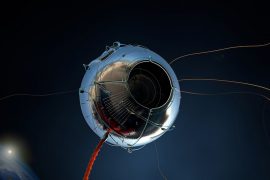Science has especial intentions; and, therefore, specific comprehension and/or readership profile for books—of a protocol not merely confined to the world of facts, but also literary embellishment, unlike standard, popular opinion. In actuality too, science is creativity personified and vice versa. This is not all. Science, like its writings, is, doubtless, the exploration of the mind and also matter in frames and words: of verified, or verifiable, knowledge brought forth by the sublime conception of percepts and induction of deducts.
It is agreed that for scientific imagination to blossom forth from conceptualisation to perception—not many precepts are needed. For example, Albert Einstein’s elucidation of the concepts of relativity, when he turned on the ‘engines’ of science for readers who had had a good algebraic background. Or, Fritjof Capra’s transcendent illustration of his primaeval concepts vis-à-vis the marvels of physics for readers who may not have a smattering of the subject, much less mathematical proclivity. It isn’t, therefore, all too easy. Yet, add to it a plethora of scientific and popular science editions, and you have an enormous number of works, by and large, elaborate and complex, with their own swivel of conscious and prepared readers.
Every scientific discipline has had in its physical compass, or literary radar, books of the highest value. They may also have been complex, and at the same time, easy-to-understand, or something not effortlessly comprehensible. Committed readers may not have had any problems glancing through them, even if they are/were manuals and not as highly exalted as they would have wanted them to be. Reason: books don’t offer a warranty, or pledge, to be all-encompassing. Generally, they are ‘options’ from the full discipline. They use finite data and also view hypothetically wider parameters, or dimensions, than most texts, or treatises. They also aspire, no less, to captivate with their approximation, while refining their crux with an expansive gleam.
-30-
Copyright©Madras Courier, All Rights Reserved. You may share using our article tools. Please don't cut articles from madrascourier.com and redistribute by email, post to the web, mobile phone or social media.Please send in your feed back and comments to editor@madrascourier.com











